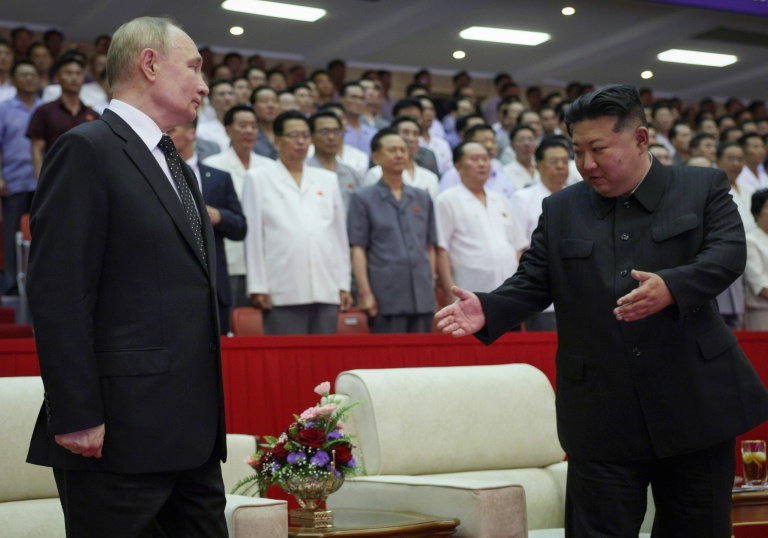China, officially allied with Russia, is concerned that a visit by President Vladimir Putin could embolden North Korea and spark a regional crisis, a senior U.S. official said on Monday.
Deputy Secretary of State Kurt Campbell said China had expressed “anxiety” in its interactions with the United States after Putin signed a defense pact with North Korea last week.
“It’s probably fair to say that China is concerned that North Korea will take some kind of provocative action that will lead to a crisis in Northeast Asia,” Campbell told the Council on Foreign Relations.
He pointed to an increase in small-scale military incidents by North Korea on the border with South Korea, as well as Pyongyang’s “very provocative language” and its “absolutely clear determination” to shy away from diplomacy with the United States.
Campbell said the United States believes Russia is considering increasing its support for North Korea, including in the nuclear field.
“This is a dangerous set of developments that we are watching closely,” Campbell said.
North Korea faces numerous UN sanctions over its nuclear and missile programs but has found a willing ally in Russia, a veto-wielding Security Council member, by firing a barrage of artillery shells at Russia’s invasion of Ukraine.
Putin signed an agreement with North Korean leader Kim Jong Un that includes a pledge for the two countries to come to each other’s aid if attacked, in a move seen as a return to a Cold War-era alliance.
China has long been North Korea’s main partner but has distanced itself from Kim Jong Un in recent times and has said little publicly about Putin’s visit.
The United States also accuses China of aiding Russia’s military buildup through the export of industrial products, though not directly through arms sales.
Campbell said that while China and Russia share a common opposition to the West, they have different views on China’s relationship with North Korea as well as with former Soviet republics in Central Asia.
“I think it’s likely that we’ll see renewed tensions between Moscow and Beijing in the future,” Campbell said.
But in the short term, China may have an advantage and be able to acquire submarines and other technology from Russia, which still has more advanced capabilities, Campbell said.
– Support for the Philippines –
Putin’s visit to Pyongyang unsettled South Korea, which normalized ties with Moscow after the collapse of the Soviet Union and said it would reconsider a ban on arms supplies to Ukraine.
Putin’s unrest comes at a time when Chinese President Xi Jinping has sought to warm ties with the United States, including through diplomacy with President Joe Biden.
The one exception is the Philippines, a U.S. treaty ally that has been embroiled in an intensifying conflict as China asserts itself in disputed waters.
A Filipino soldier lost a finger in a recent clash.
Asked what actions by Beijing would trigger the treaty, Campbell said only that the United States had been in “close consultations” with the Philippines on the matter.
“Our officials have been very clear about the circumstances under which the treaty between the United States and the Philippines applies,” Campbell said, without providing further details.
He said the United States was also taking “private steps” without providing details to address the tensions and that the Philippines wanted to be “cautious” in its negotiations with China.
“They don’t want a crisis with China. They want a dialogue,” he said.
sct/md

